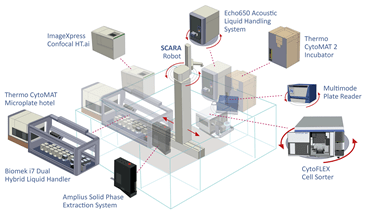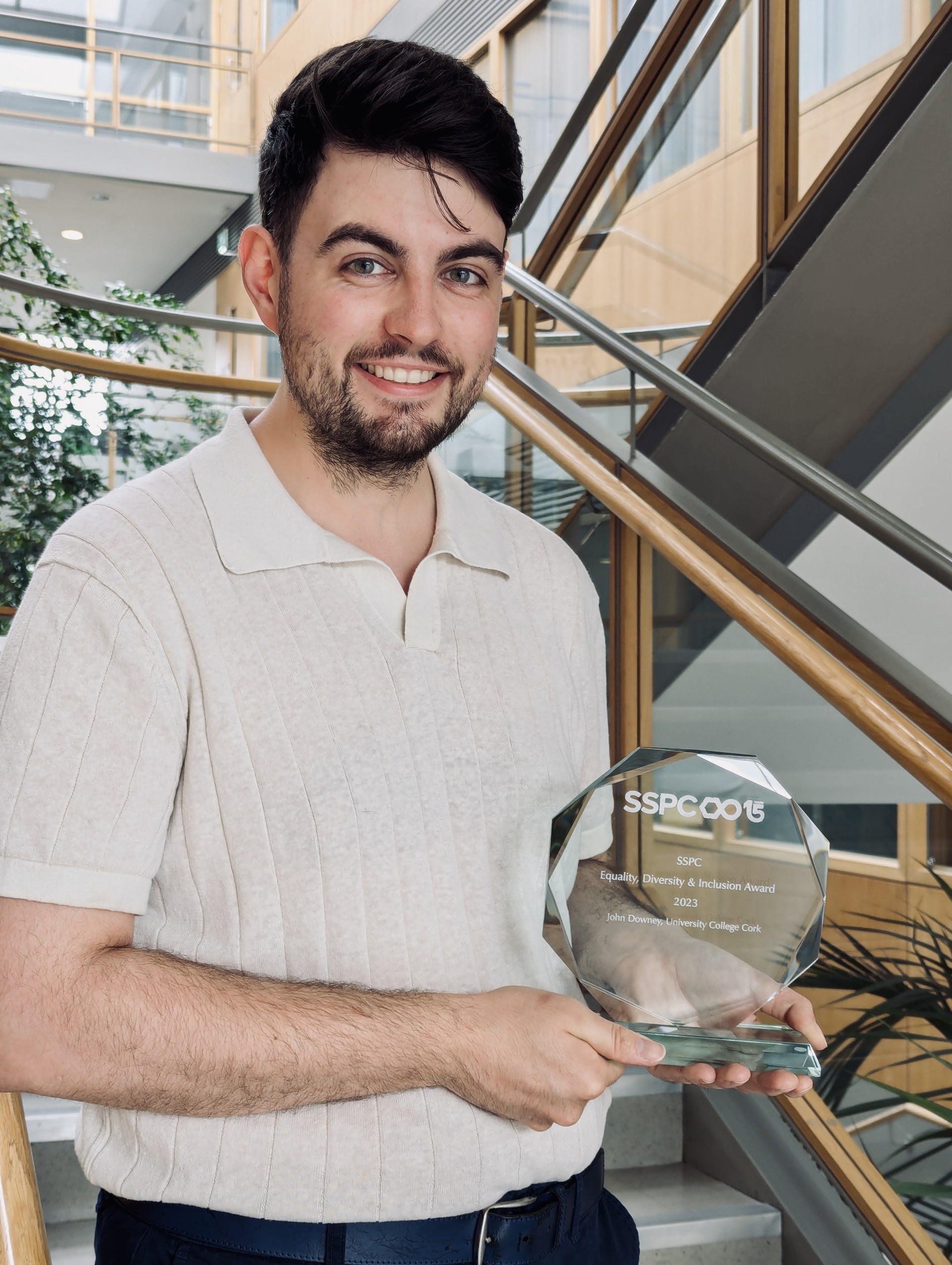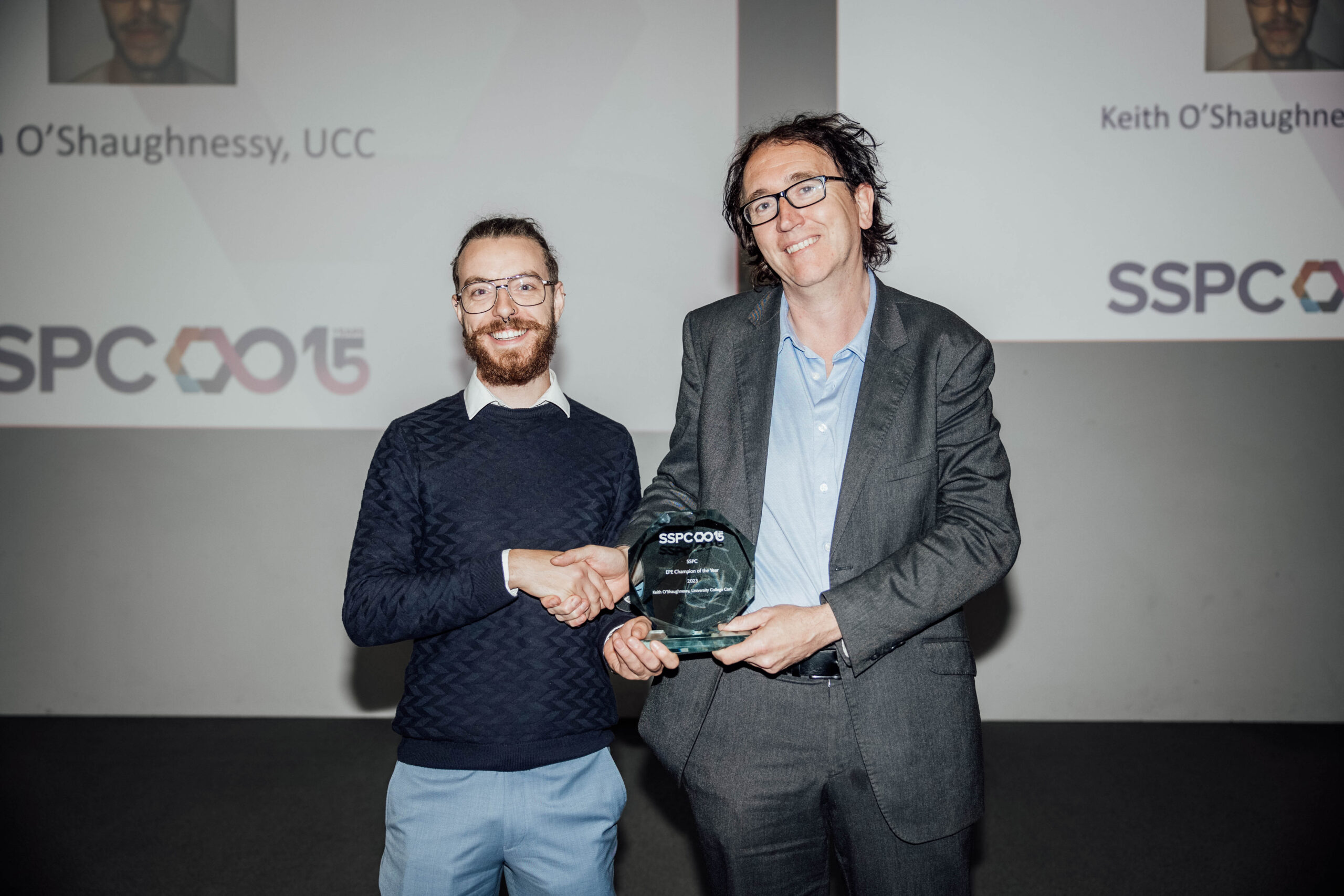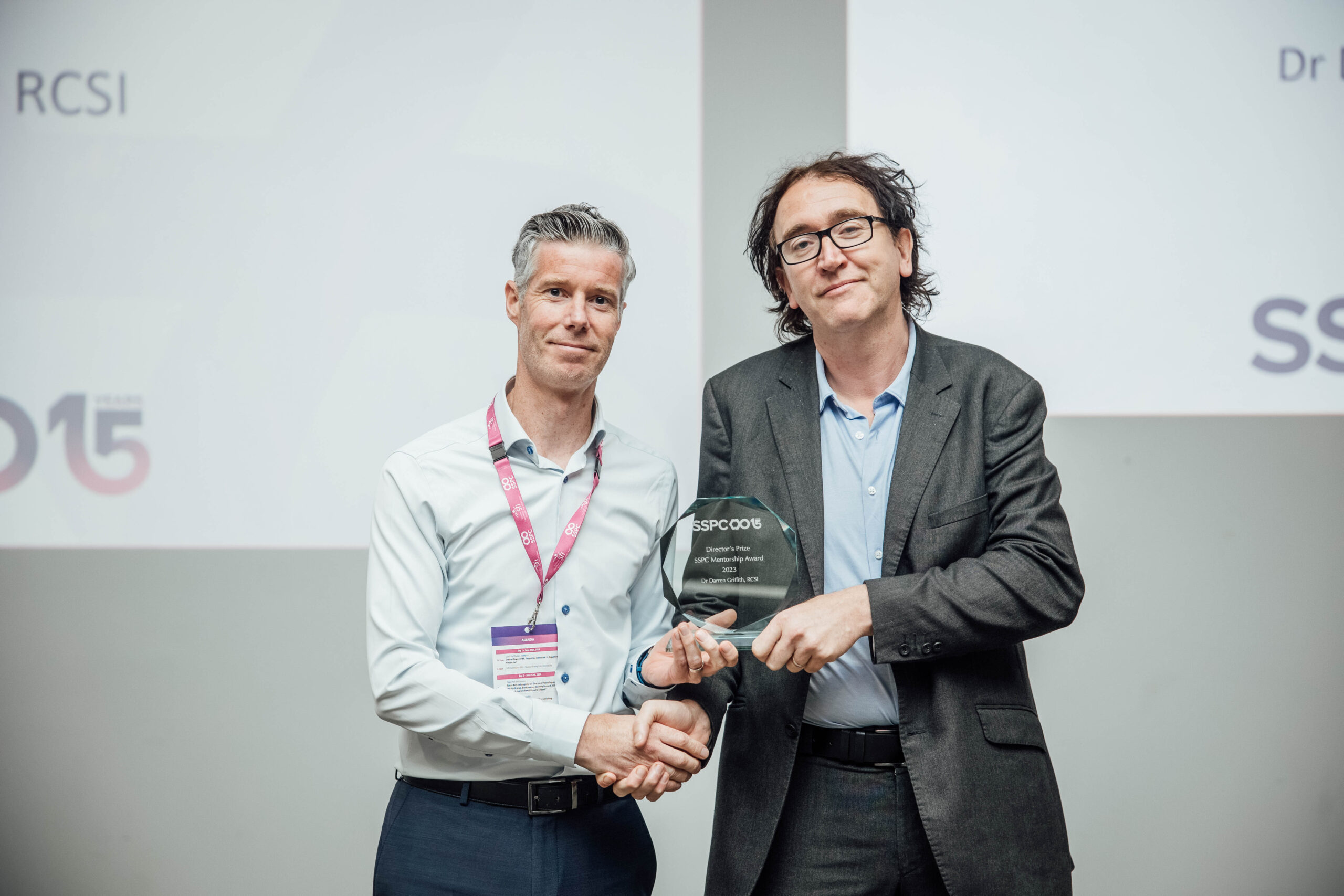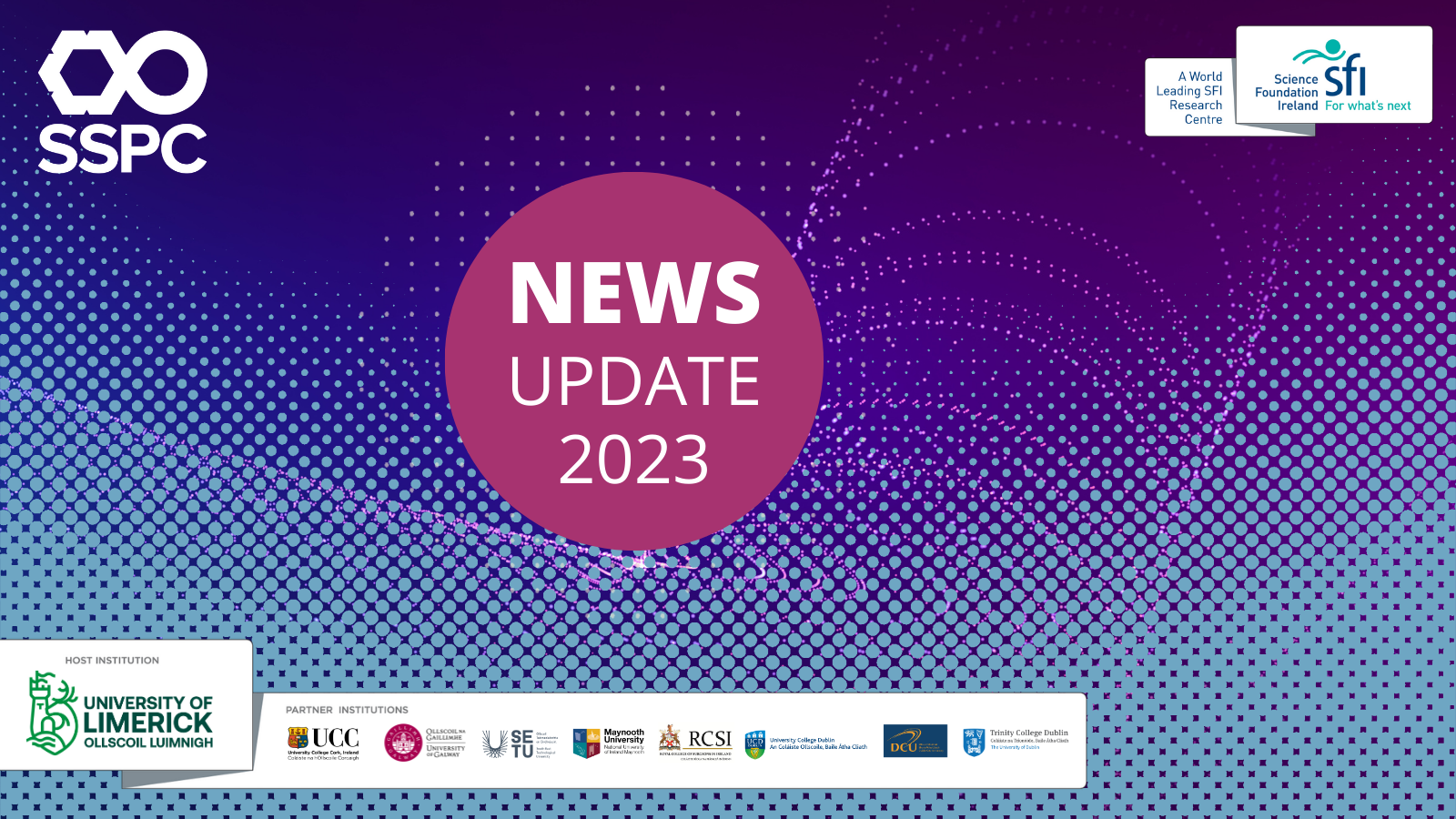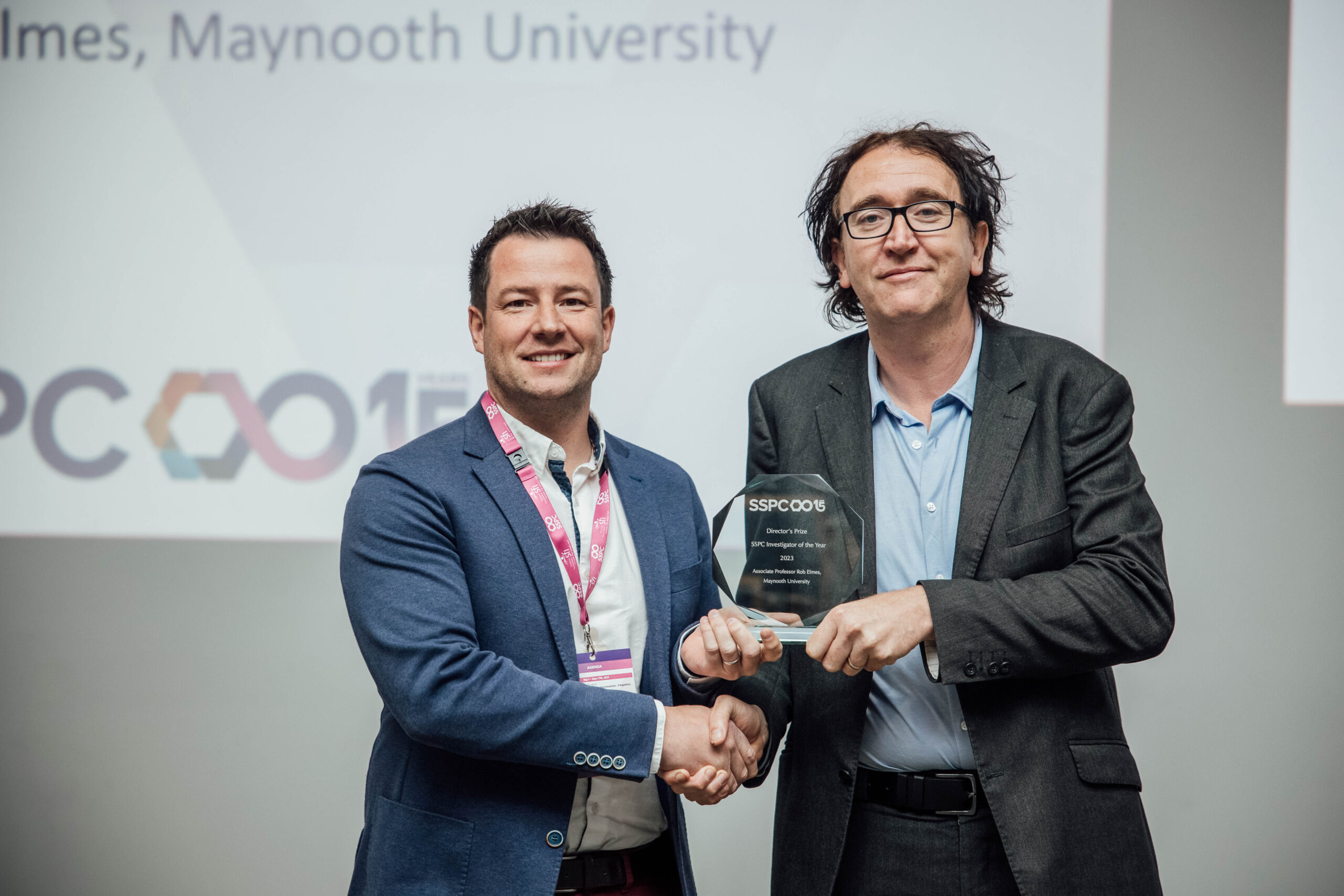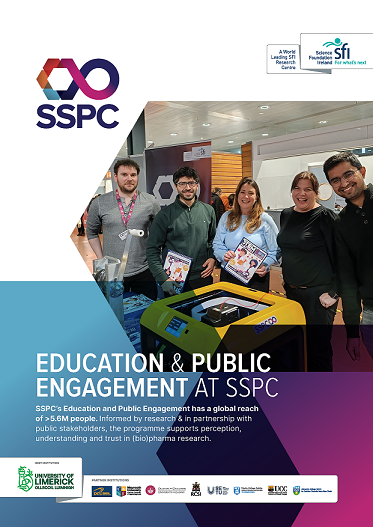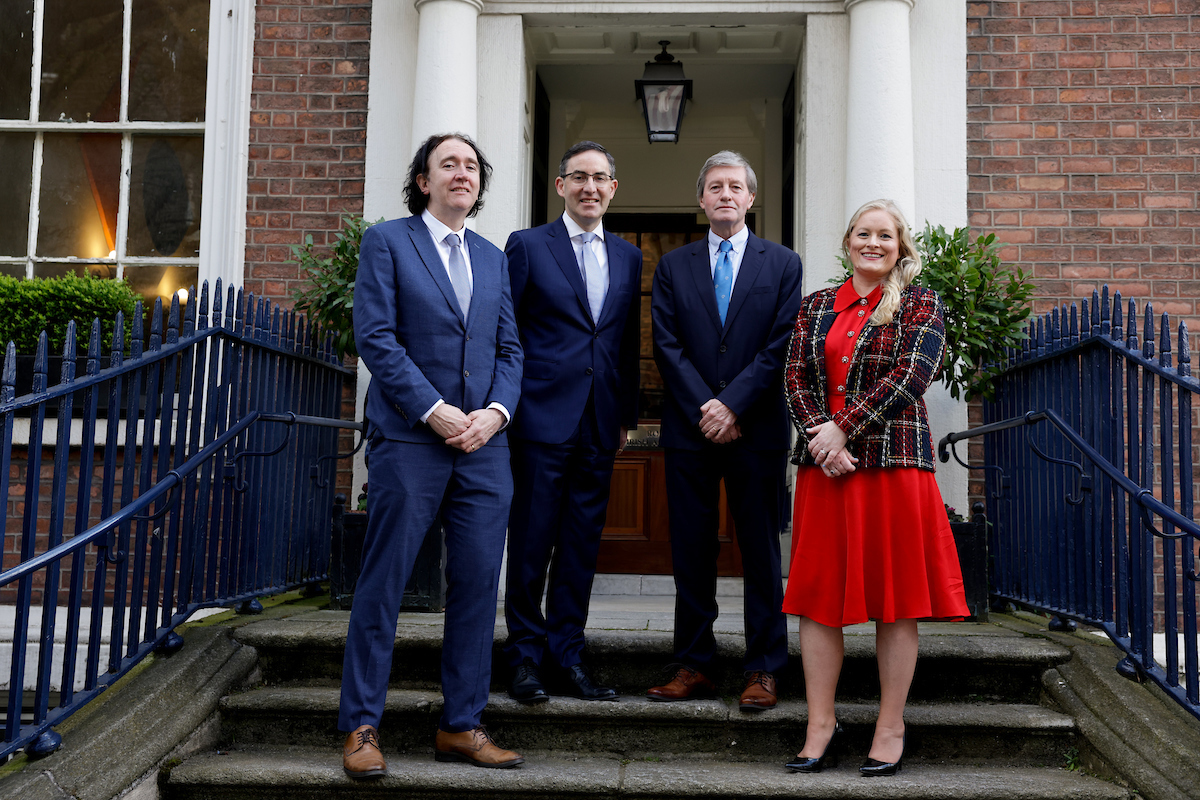The SFI Research Infrastructure Programme facilitates broad usage across Ireland to encourage partnerships and collaboration between different cohorts of researchers in Ireland; for example, between universities, technological universities, Institutes of Technology, other eligible research bodies, researchers in the Republic of Ireland and Northern Ireland, and between different cohorts of researchers in Ireland. Congratulations to our following researchers on their win:
Prof. Andrew Kellett, Dublin City University (DCU): AUTOPILOT – high-throughput cell characterisation system.
In 2022, in an application led by Prof. Andrew Kellett, DCU was awarded €2.41M for the AUTOPILOT system from SFI’s Infrastructure call. This system is a unique, custom build, robotically controlled platform enabling high-throughput cell characterisation including phenotyping by flow cytometry, high content analysis, proteomics, and cell culture analysis. It enables numerous automated workflows to be performed simultaneously, essentially facilitating analysis of any perturbation to cellular function by a large pool of compounds or in a number of model systems.
Late diagnosis and a lack of curative treatments for aggressive cancers is likely to remain one of the most complex and expensive health issues of the 21st century in Ireland and beyond. Despite advances in our understanding of disease states and tandem targeted drug discoveries, clinical drug failure rates remain stubbornly high. This failure is partly associated with the analysis of complex disease states under narrow conditions with limited read-out and target pool screening capabilities. The AUTOPILOT system is a breakthrough robotic automated cell culture characterisation suite that can address this limitation. The system can perform multiple cellular phenotypic characterisation analyses to provide a global quantifiable measurement of both disease states and drug efficacy. The instrumentation cuts across multiple disciplines of intensive research focus in Ireland—including drug discovery and translational medicine—and will fundamentally strengthen both early- and late-stage research capabilities and enhance our ability to produce excellent science.
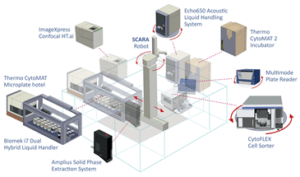
In a national context, AUTOPILOT provides an interface to support researchers in their analyses of diagnostic and therapeutic biomarkers, and positions DCU at the centre of advances in Therapeutics, Diagnostics, Data Analytics, Artificial Intelligence, and Robotics.
Prof. Anita Maguire, University College Cork (UCC): Fast reaction kinetics in NMR Spectroscopy
This infrastructure will enable for the first time in Ireland, direct monitoring of fast reactions in real time by NMR spectroscopy, providing unparalleled insight into the details of reaction processes which are complete in 5-10 mins or less, which to date have been beyond the reach of investigation by NMR spectroscopy. The technology which has led to the InsightXpressMR system was developed over recent years through a collaboration between Bruker and Prof. Guy Lloyd-Jones (University of Edinburgh), and is only recently commercially available. We are particularly pleased to note the complementarity of this new system with the existing ProSpect infrastructure in UCC.
While ProSpect was a game changer in terms of enabling direct monitoring of reactions in real time, addition of the InsightXpressMR system will enable expansion the scope of reactions which can be explored to include very fast transformations. The experience of the team in UCC in the establishment and use of ProSpect will ensure the effective embedding of the new infrastructure, complementing and adding to existing capability. A number of significant publications have already emerged through the establishment of ProSpect – we envisage similarly exciting developments through this new infrastructure focusing for the first time on fast reaction processes.
Dr Luis Padrela and Vivek Ranade, University of Limerick (UL): Next Generation Nanopharma Process Development Platform (NaPRO)
Dr Luis Padrela and Prof Vivek Renade’s NaPRO project was approved for funding from Science Foundation Ireland under the Research Infrastructure programme (Total €1,286M; SFI funding of €808). The goal of NaPRO (Next Generation Nanopharma Process Development Platform) is to provide cutting-edge pharmaceutical nanotechnologies coupled with real-time advanced characterization tools.
NaPRO will be a unique state-of-the-art testbed with new ‘smart’ process systems, which will allow to de-risk the scalability and manufacture of nano(bio)pharmaceuticals and facilitate the adaptation of these technologies to existing industrial facilities. NaPRO will enable the development of robust and scalable compliant methods of production of nanomedicines that enable progression from a small production scale (in the mg range) to a commercially relevant scale (in the kg range). Bringing the processes, process equipments and comprehensive characterization tools under one roof in NaPRO will allow the development of next generation processes and manufacturing technologies to academic collaborators and pharma/biopharma industry, nationally and internationally, including drug developers. This will underpin the next generation manufacturing of (nano)medicines and will catapult Ireland into a leadership position in this area. This project has been fully endorsed by several national and international research centres such as CMAC and CPI (UK), RCPE (Austria), and pharmaceutical companies including Eli Lilly and TEVA.
Prof. Kevin Ryan, University of Limerick (UL): The National Rechargeable Battery Fabrication and Test Facility (NRBFT)
Professor Kevin Ryan’s project will co-fund with Sustainable Energy Authority of Ireland (SEAI) a National Rechargeable Battery Fabrication and Test Facility at the University of Limerick. This one-stop-shop for battery development is not present anywhere else in Europe. It will combine electrode fabrication, cell assembly, testing and state-of-the-art materials characterisation within one location for the first time in Ireland.
Prof. Peter McLoughin, SETU Waterford: Nanoscale Chemical Imaging System

